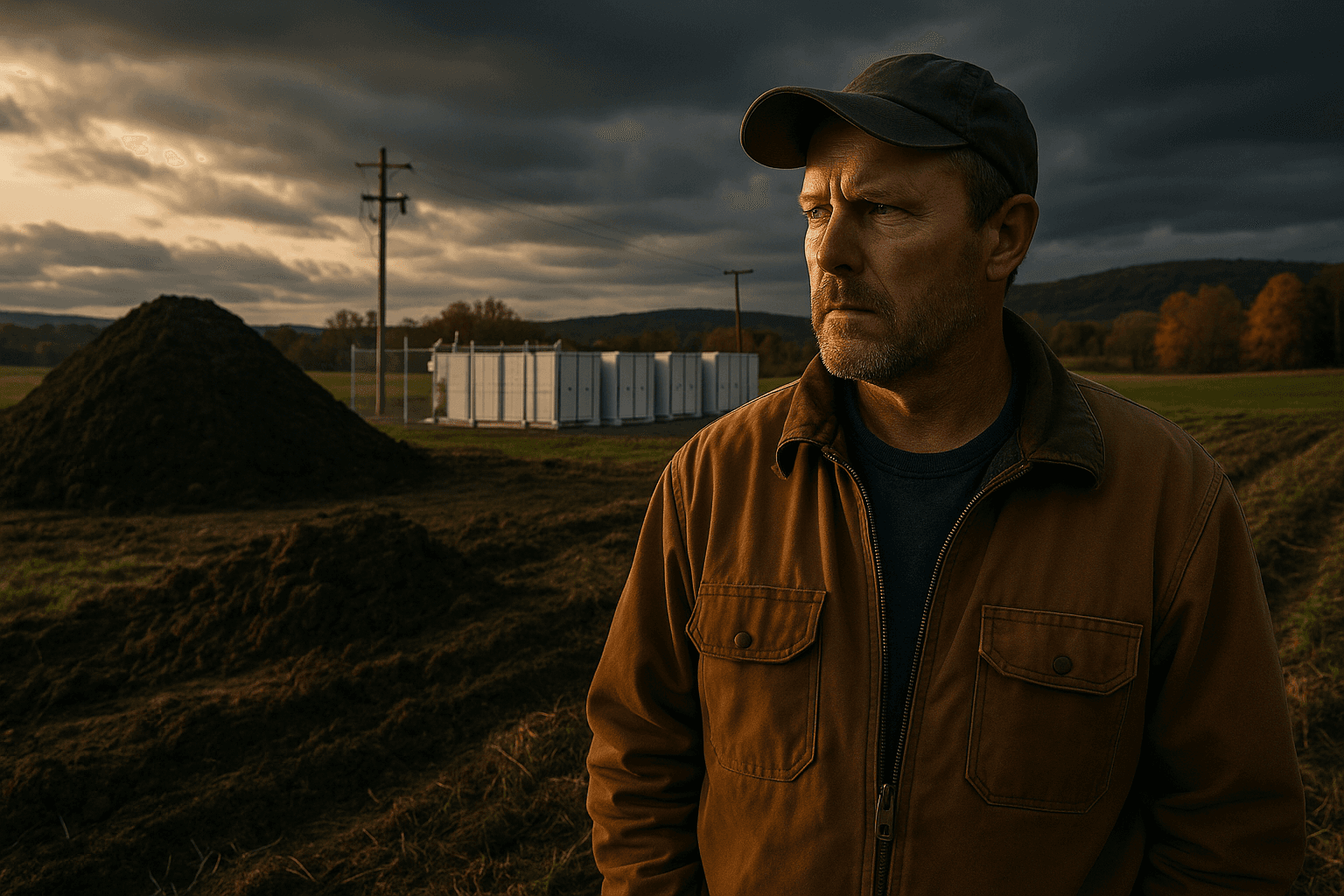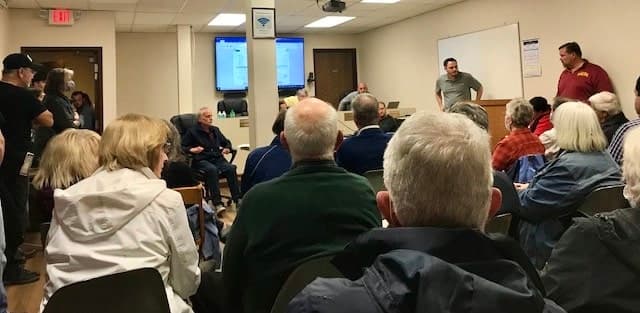Goshen Bans Biosolids, Moves on Battery Storage Moratorium
The Town of Goshen on November 13 unanimously approved a ban on the application of biosolids on local farmland, citing contamination concerns. The board also scheduled further hearings on battery energy storage systems and took multiple administrative actions that affect local finances and permitting.

The Goshen Town Board voted 4 to 0 on November 13 to prohibit the use of biosolids within town limits, a measure approved after a public hearing. Deputy Supervisor George Lyons presided in the absence of Supervisor Joseph Betro and explained that biosolids are sludge from sewage treatment plants that have been sold to farmers as fertilizer, but often contain heavy metals and PCBs. The vote reflects local officials prioritizing environmental health and agricultural safety in response to contamination concerns.
The ban has immediate policy implications for local agriculture and municipal waste management. Farmers who purchased biosolids as a low cost soil amendment will need alternative sources of fertilizer, while municipalities and treatment facilities that previously distributed sludge may face increased disposal costs or regulatory adjustments. Enforcement responsibility will fall to town officials, raising questions about inspection protocols and coordination with state environmental regulators.
Board members also scheduled a public hearing for December 11 to consider a temporary moratorium on battery energy storage systems. The moratorium discussion signals growing local attention to siting, safety and land use impacts of new energy projects. The board set a special meeting for November 25 because the next regular meeting would fall on Thanksgiving, indicating a compressed schedule to address emerging local issues before year end.

On the financial front the board voted to relevy unpaid water and sewer fees totaling $180,000, an action that will move those charges onto property tax bills and affect delinquent accounts. The board granted a six month extension to Lightstar for its special use permit, extending the companys timeline to meet permit conditions and complete required review steps.
The meeting closed with a memorial for Charlie Van Haaster, former chair of the Zoning Board, noted as the son in law of Councilman Philip Canterino, and the husband of a town judge and a soccer coach. Taken together the board actions reflect a focus on environmental precaution, municipal revenue stability, and ongoing scrutiny of development and energy projects that will shape community priorities in coming months.


